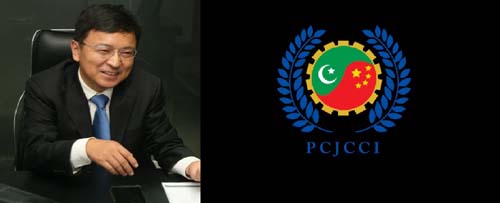PCJCCI chief proposes China model for success of Pakistani tax system

Lahore: President Pakistan China Joint Chamber of Commerce and Industry (PCJCCI) Wang Zihai has proposed that Pakistani tax system should follow the China model for success.
During an online meeting at PCJCCI Secretariat here, Wang Zihai contended that the that prevailing taxation system was a burden for the business community, which needs to be replaced with better taxation models of the world including the Chinese model that had proved to be the most successful.
“Pakistan’s tax system should be revised and improved, based upon growth instead of the regulatory pressures. The administrative reforms are essential in the tax system and attention should be paid to re-designing of tax recovery system, He added.
Wang Zihai also gave a briefing on the proposed tax reforms road map based on the Chinese taxation model.
He mentioned that there was a need to create an optimal balance between a tax regime and the growth of business to create an investment friendly environment along with an effective mechanism for leveraging enough revenue for public service.
He said that China had undergone a splendorous community development on the basis of its taxation reforms and Pakistan could make a paradigm shift to have a business friendly taxation system by following Chinese taxation reforms.
“China made taxation central to the economic development agenda and community development goals; he said, adding that China had employed taxes as the principal means to transfer resources from private to public use,” he remarked.
PCJCCI senior vice president Ehsan Chaudhry while expressing his views observed that China had fulfilled the needs of society from cradle to grave.
“Child care, education, job placement, housing, subsistence, health care and elder care were largely provided and administered through state-owned enterprises,” he elaborated.
In his coments, PCJCCI vice president Sarfaraz Butt said that particularly the reform of value-added tax (VAT) had boostedChina’s service sector and developed its position as the “world’s factory.
He added that VAT reform was designed to replace business tax in manufacturing sector to protect the tax revenue of local governments. The tax, in China, emerged as a by-product of growth and the government in Pakistan should also concentrate on growth that would automatically increase taxes, noted.
On his turn, PCJCCI Secretary General Salahuddin Hanif said that once equity and fairness in the tax system had been demonstrated, enforcement as well as compliance would dramatically improve.





